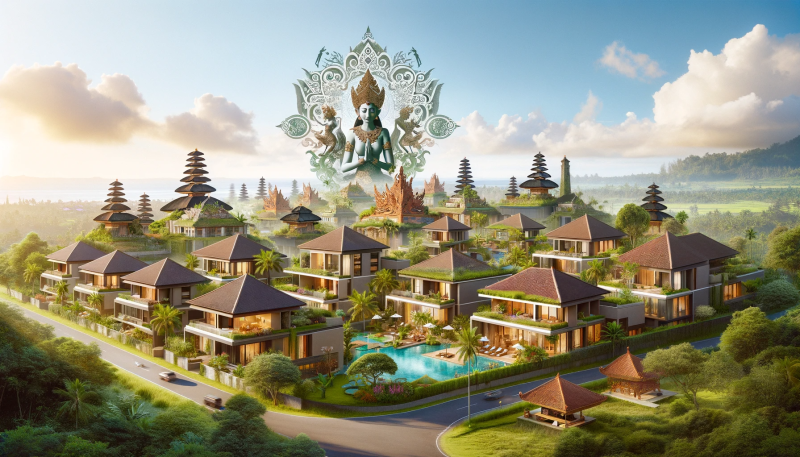Introduction:
Hello, Dewi here! In today’s blog, we’re delving into the heart of Balinese culture and its pivotal role in real estate development. Bali, a land of profound cultural wealth, presents unique challenges and opportunities for real estate developers and investors. Here, we explore how respecting and incorporating local traditions can lead to more sustainable and community-centric real estate projects.
Understanding Awig-Awig:
In Bali, the concept of ‘Awig-awig’ – traditional customary regulations – plays a crucial role in community life. These regulations are deeply rooted in Balinese culture and often govern land use and development. For developers, understanding and adhering to these local norms is not just respectful but also essential for successful project integration into the local community.
Integrating Cultural Values in Development:
- Community Engagement: Engaging with local communities and understanding their needs and cultural values is a foundational step. This approach fosters mutual respect and ensures that developments align with the cultural and environmental ethos of Bali.
- Conservation of Natural and Socio-Cultural Resources: Development projects should aim to conserve and enhance Bali’s natural beauty and cultural heritage. This includes respecting sacred sites and incorporating traditional Balinese architectural elements.
- Sustainable Practices: Adopting sustainable practices in real estate development not only respects the environment but also aligns with the Balinese philosophy of ‘Tri Hita Karana’, emphasizing harmony among people, nature, and the divine.
Real-World Examples:
Real-world examples of integrating cultural considerations into development can be seen in several projects across Bali. For instance, the development of ecotourism villages in Bali has been a testament to the successful integration of cultural values. These villages are not only tourist attractions but also serve as conservation areas for Bali’s unique cultural legacy. Balinese cultural values, closely tied to traditional regulations or ‘Awig-awig’, have been instrumental in encouraging conservation and participation from local communities. As reported, the local communities’ engagement in conserving natural and socio-cultural resources has led to the sustainable development of these ecotourism sites, thereby supporting the local economy and preserving cultural heritage.
Conclusion:
In conclusion, respecting and integrating Balinese cultural values in real estate development is not just about adhering to regulations. It’s about building a harmonious relationship with the land and its people, leading to sustainable and successful developments. Let’s continue to honor Bali’s rich cultural legacy in every brick we lay and every home we build.
– Dewi
